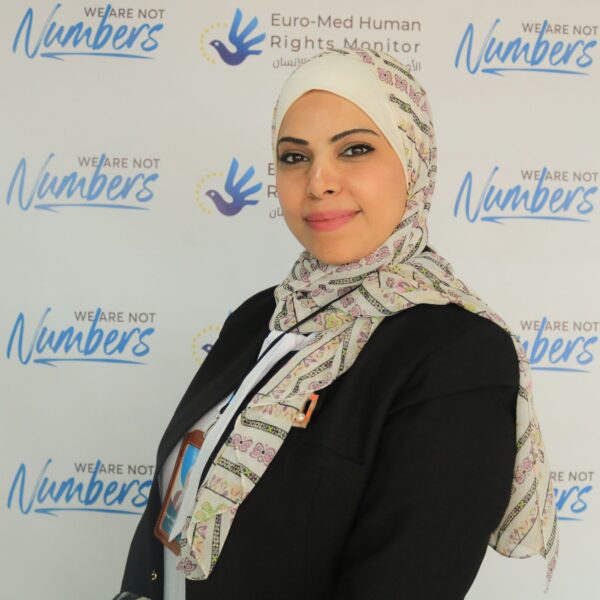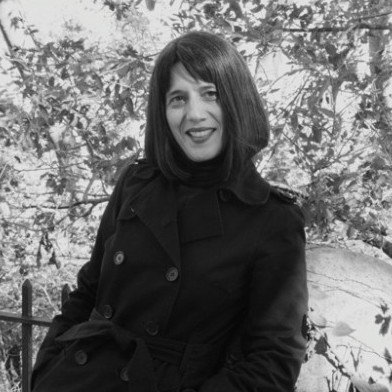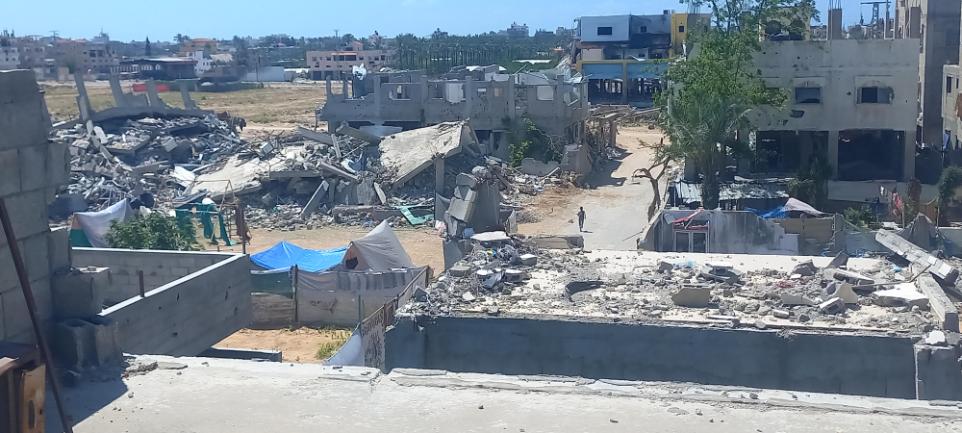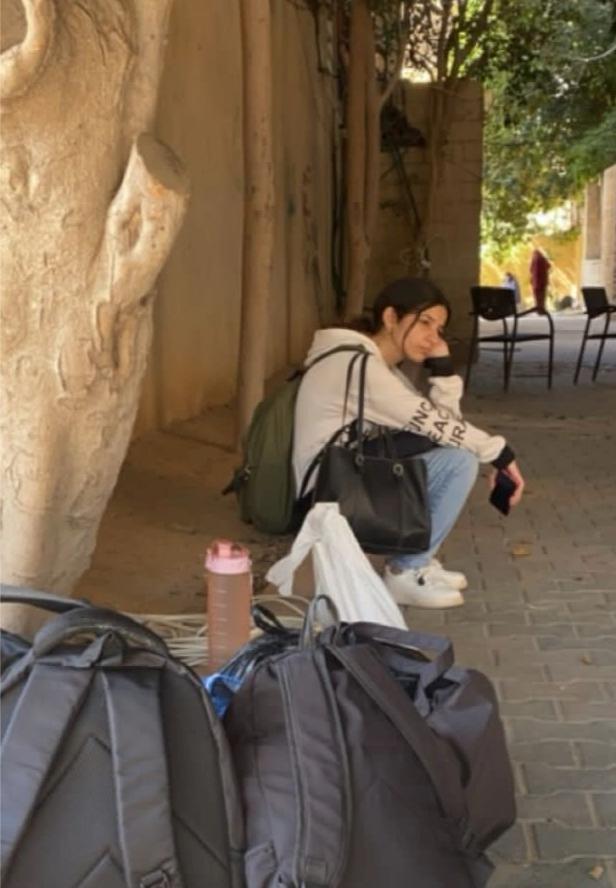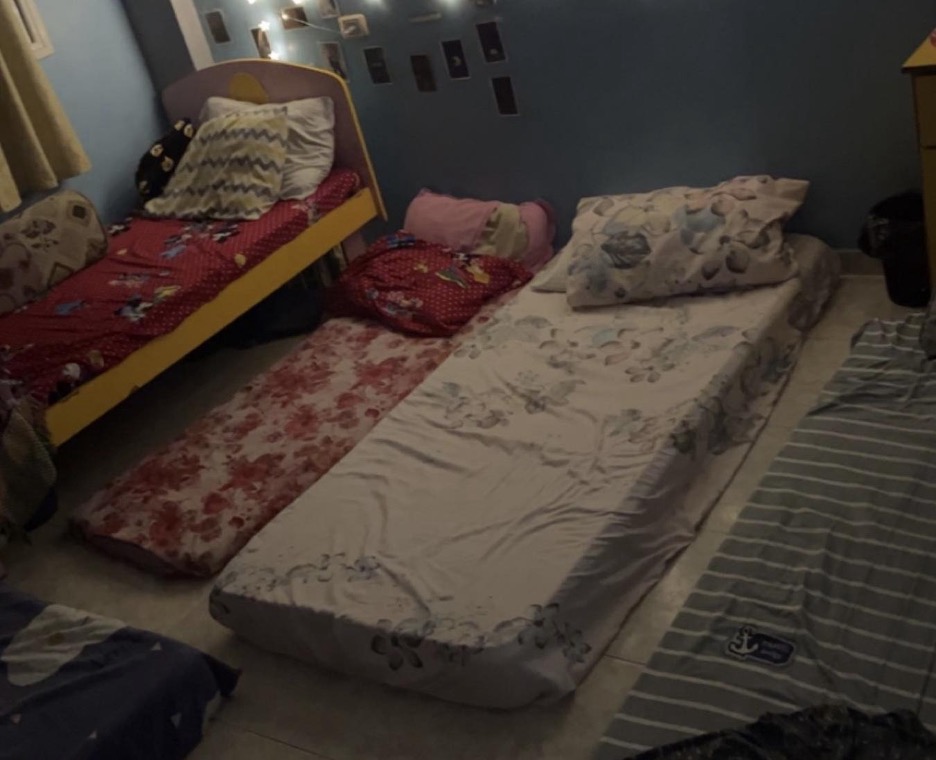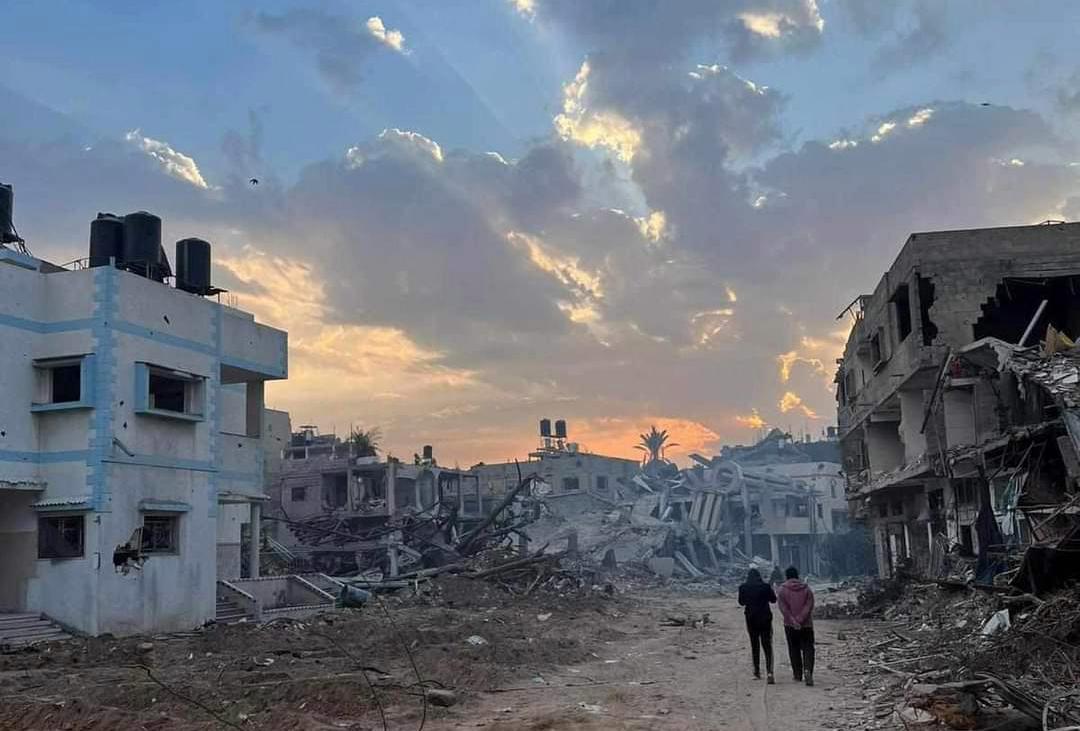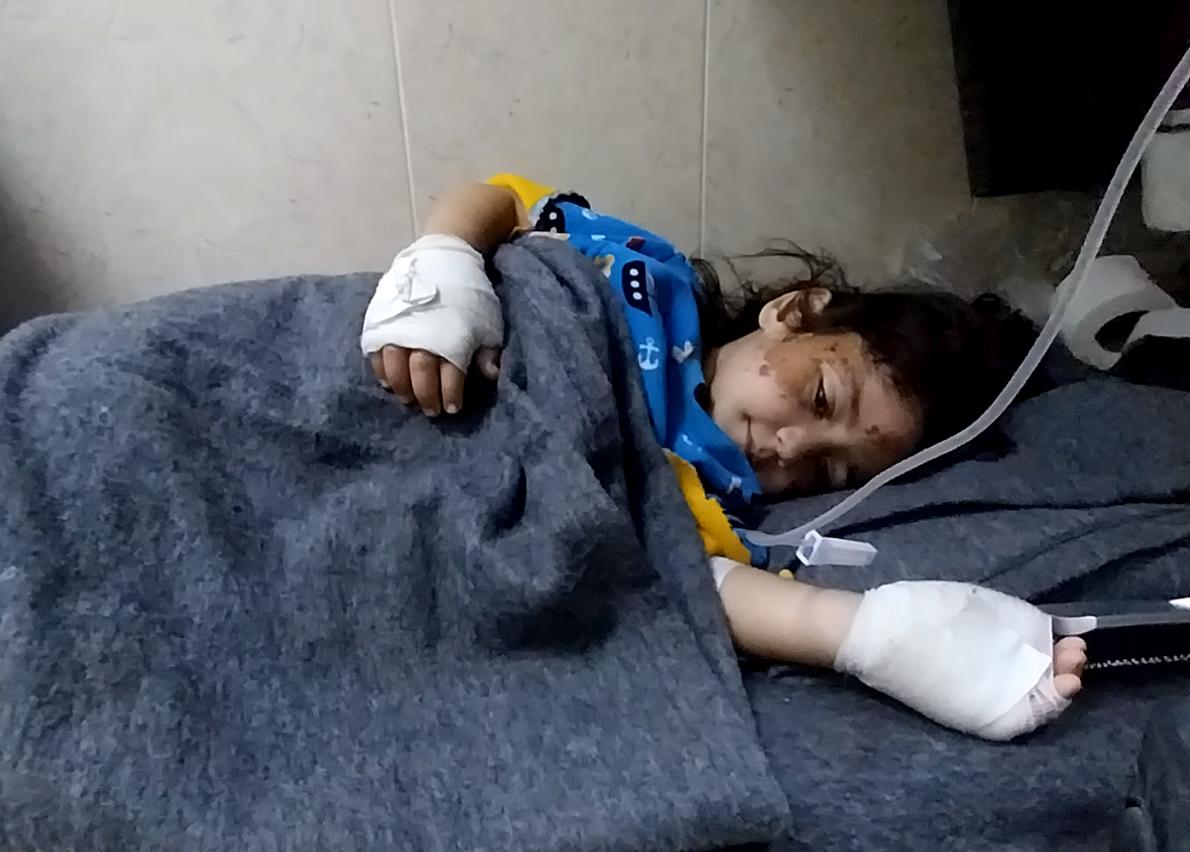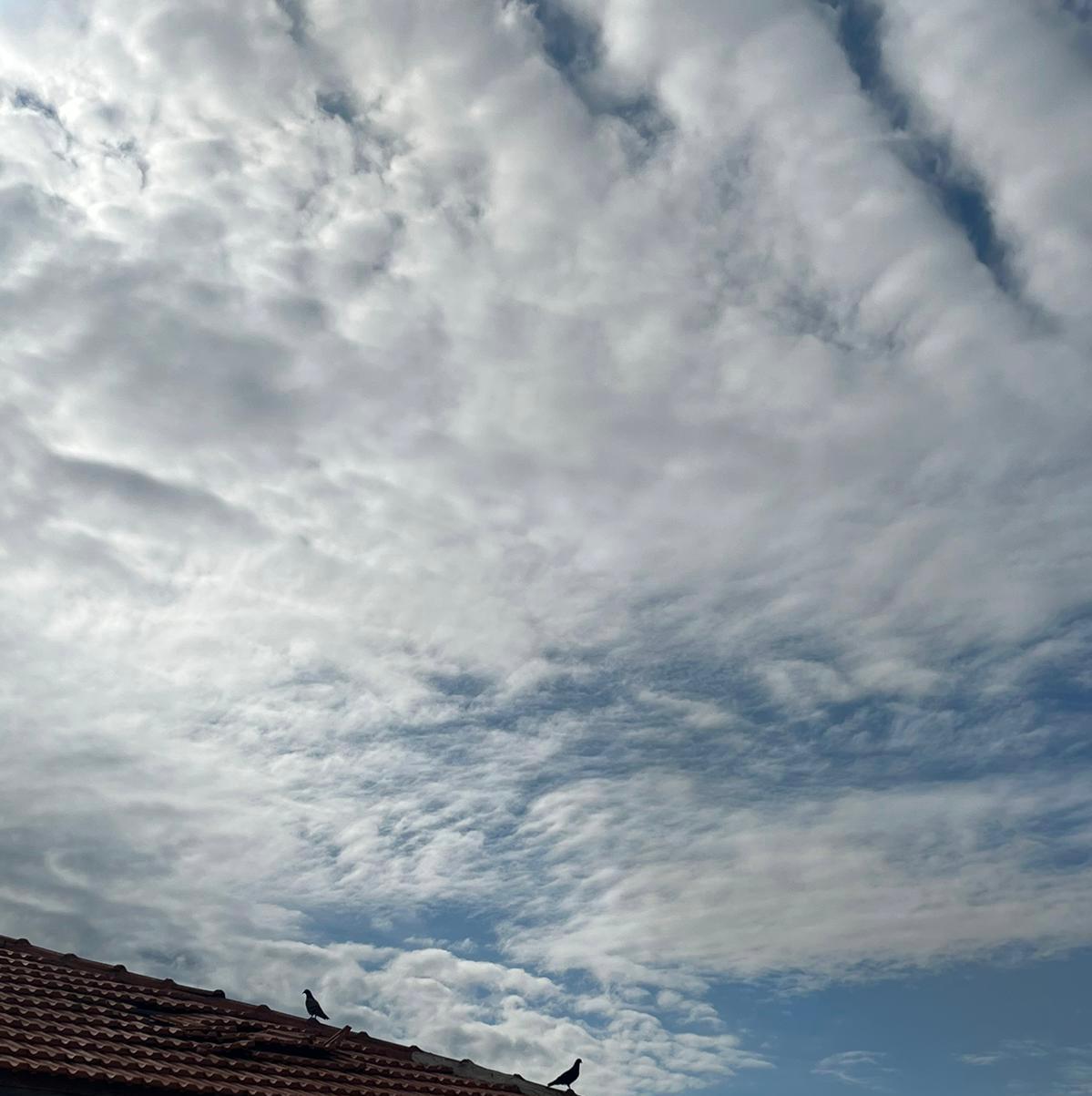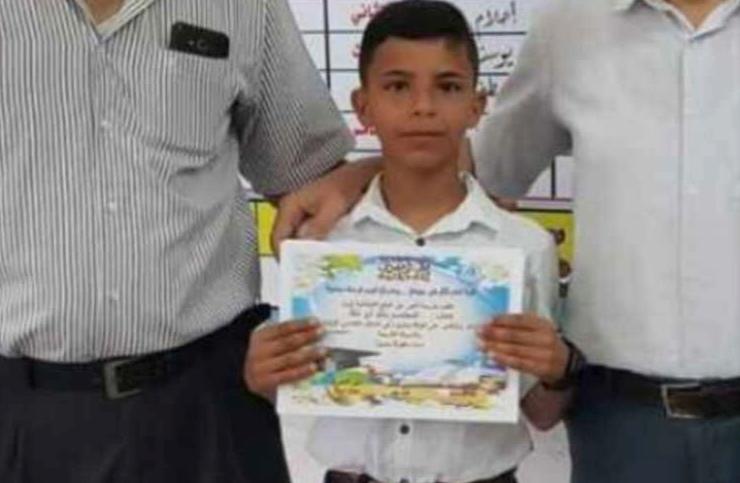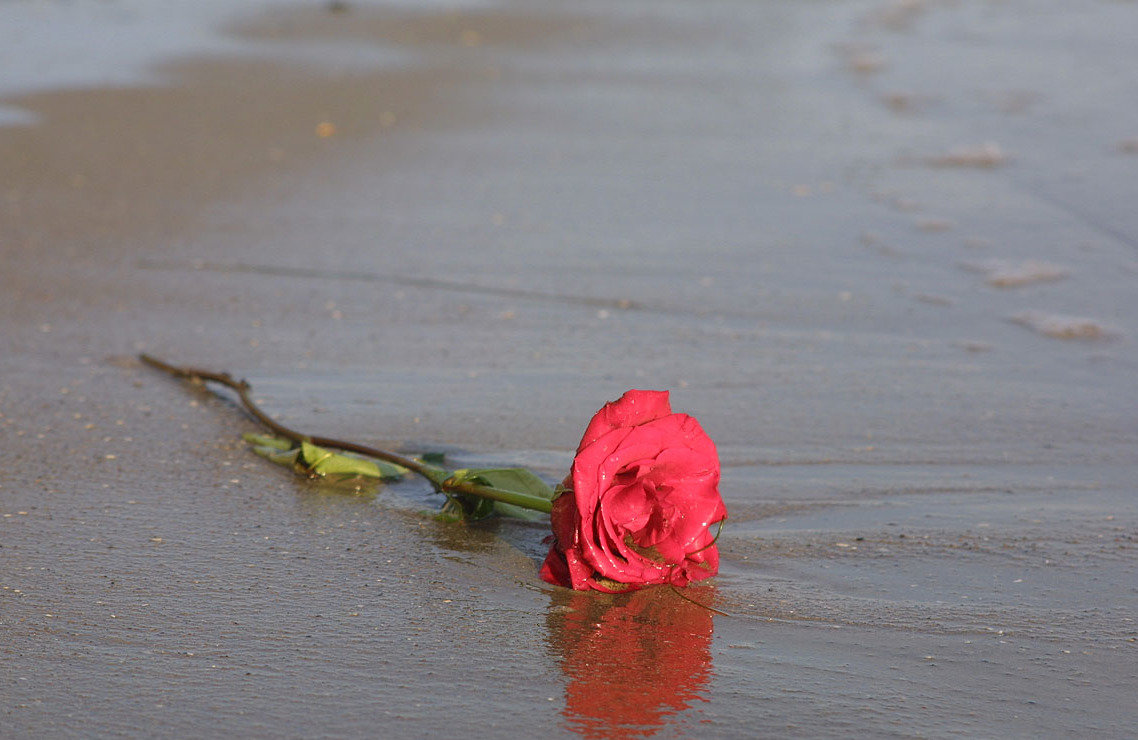
The three days of mourning ended. Ruba and her 4-year-old daughter Yasmin were staying with her in-laws after their own home was destroyed in the summer war. Ruba sat on the bed with Yasmin next to her, looking at the photo album from her wedding that she managed to rescue.
Ahmed, her husband, was a medic. During the summer assault on Gaza by Israel, he was rarely at home. He wasn’t at the house on the day she received a phone call from an Israeli soldier telling her she had only two minutes to evacuate the house. Ruba had quickly picked up her daughter and grabbed a few things—this album among them—and fled. Two minutes later the house was bombed. Two days later, she received the news that the ambulance her husband was in also was bombarded, and the blast had been so powerful it was hard to identify the bodies.
"And this is when we entered the wedding hall, "Ruba said to her daughter, pointing at a photo of the bride and groom. Ruba was wearing a white dress, while Ahmed held her arm and pressed her palm close to his heart.
For four months and 10 days she stayed at home with her parents-in-law for her Eda (the legally prescribed mourning period before a widow is allowed to remarry in Islam). Sad as she was, grieving and really unable to think of anything, others in the family had plans for her. Her sisters-in-law were always grumpy with her. Her parents-in-law talked most of the time with their three surviving sons, alone. She didn’t understand at first, but then it became clear when she heard them talking about Yasmin.
One afternoon when Ruba was within earshot, her mother-in-law said in a low voice to her husband, “How can we accept our granddaughter Yasmin living at someone else's house? Ruba is young; she will marry one day for sure. Better she should marry one of our sons and stay in the family." Ruba’s heart started to beat fast and she was afraid. She recalled the image of her sisters-in-law, sitting together in a corner whispering to each other, and looking worried during the mourning period. They were afraid of her; she would become a second wife to one of their husbands.
When Ruba decided to avoid the problem by returning to her family, her parents-in- law told her that she would have to leave Yasmin with them. So she stayed.

Muhammad, Ahmed’s younger brother, had been married to Dina for four years without children. Dina—the shy girl who barely spoke at the beginning of her marriage—had found comfort in the company of Ruba. In time, they became close friends, confiding almost everything to each other. Dina was afraid her husband would take another wife so he could have children, but Ruba kept telling her that Muhammad wouldn’t do that. As she nodded her head in agreement, Dina knew in her heart that his mother would one day convince him.
The mother-in-law decided that Muhammad and Ruba should get married for the sake of Yasmin. But Ruba, unable to betray her husband or to do such a thing to her friend, refused.
Ruba took Yasmin to visit her family and didn’t come back.
But Ruba didn’t have job or a provider. Her father was dead, and her brothers could hardly manage to provide for their own families. Her parents-in-law, trying pressure her to marry Muhammad, didn’t offer any help or money for their granddaughter.
When Muhammad and his parents arrived at her parents’ house with a formal proposal, Ruba was confused. Muhammad was sitting on the same sofa that Ahmed had sat on six years earlier. She couldn’t help but compare the two brothers. Ahmed was lively and talkative. He made everyone laugh. His brother Muhammad was reserved. He didn’t talk unless someone asked him a direct question. It was his mother who brought up subjects to make him talk.
What about Dina? Ruba thought, as she imagined her friend crying. Ruba then remembered her own words to Dina: “Muhammad won't do this to you.” Ruba felt angry at herself, at her helplessness and the bombing that had flattened her home and killed her husband, putting her in this terrible situation. “What if I could find a job?” she asked herself, with a glimmer of hope. “I could depend on myself. I wouldn't need anyone to support me, and no one could tell me what to do.”

Yasmin gripped Ruba’s hand. Ruba looked at her daughter, who was so often isolated and lonely these days. There was no one to protect or defend the child anymore. Yasmin had stopped going out to play with the other children. She seemed older than her five years :Arrogance won't do me or my daughter any good,” Ruba thought. “It's better to be Muhammad’s wife than to marry anyone else.”
As if someone else was talking, as if someone else was thinking, Ruba said yes, feeling deep in her heart that she was making a big mistake, but not knowing what else to do.
Five months into her new marriage, Ruba was living with Dina, who barely talked to her except to argue. The door opened; Dina and Ruba, who walked slowly with her right hand on her back and the other on her growing belly, welcomed Muhammad. His face was white, and he was unable to speak, holding a paper in his hand
“What's wrong?” Dina asked.
“We received a letter from an Israeli prison,” Muhammad whispered.
“Israeli prison?” asked Ruba.“Who do we know in there?”
Muhammad, looking into her eyes, said: “My brother Ahmed; he's alive.”
Although the names and other personal details are fictitious, this tale is based on a true story recounted to me by my brother. It is part of the culture here in Gaza that when a husband dies, his brother often marries the deceased’s wife to make sure the children will be raised in the same family. In unfortunate cases such as this one, the woman would be asked to choose between the two husbands.

